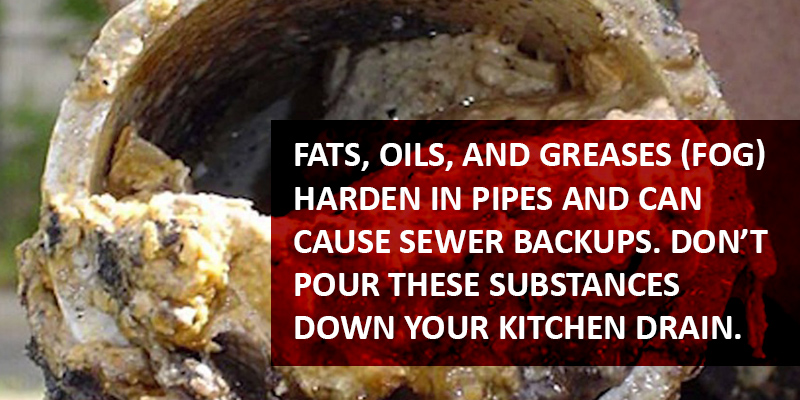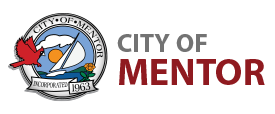
Family get togethers may be a bit different this year as a result of COVID-19, but traditional holiday menus containing meats, butter, cooking oils, dressings, and gravies, are likely to stay the same. The Lake County Department of Utilities (LCDU) sees an increased number of sanitary sewer backups this time of year as a result of food waste going down the drain.
In 2019, 82% of all wastewater backups reported to the LCDU were blockages within customer private laterals. Private laterals are the section of drainage network that exists between your home and the public sewer main, and is the responsibility of the homeowner to maintain.
Many of these backups can be minimized and prevented by taking simple steps with meal clean-up.
The easiest and most important thing you can do is avoid putting fats, oils and grease (commonly known as FOG) down the kitchen drain or garbage disposal. These substances may initially be warm or in liquid form, but they quickly harden once mixed with cold water and the winter temperatures of outdoor pipes. The hardened FOG restricts and blocks pipes, causing unwanted clogs in the sanitary sewer system. It is recommended instead that allow FOG to cool and harden and then place it directly in the trash.
Although many residents place left over food scraps in the garbage disposal, even ground-up particles—bones, vegetables, coffee grounds, egg shells, potato peels, seeds, fruit stickers and pasta—can cause clogs. Some of these items are better placed in the trash or in an outdoor compost area to help your spring flower beds.
Kindly remind guests to avoid flushing certain items that always make their way into the toilet including wipes, diapers, toys, facial tissues, paper towels, and feminine products. These items do not break down in water and may get lodged in pipes, causing immediate backups throughout the sanitary sewer system also including your private lateral.
These tips will not only help keep your lateral working properly during your holiday gatherings, but they will minimize potential problems associated with expensive and unpleasant cleanup that often have to be paid by the homeowner.
For additional information, contact the Lake County Department of Utilities at (440) 350-2070.
